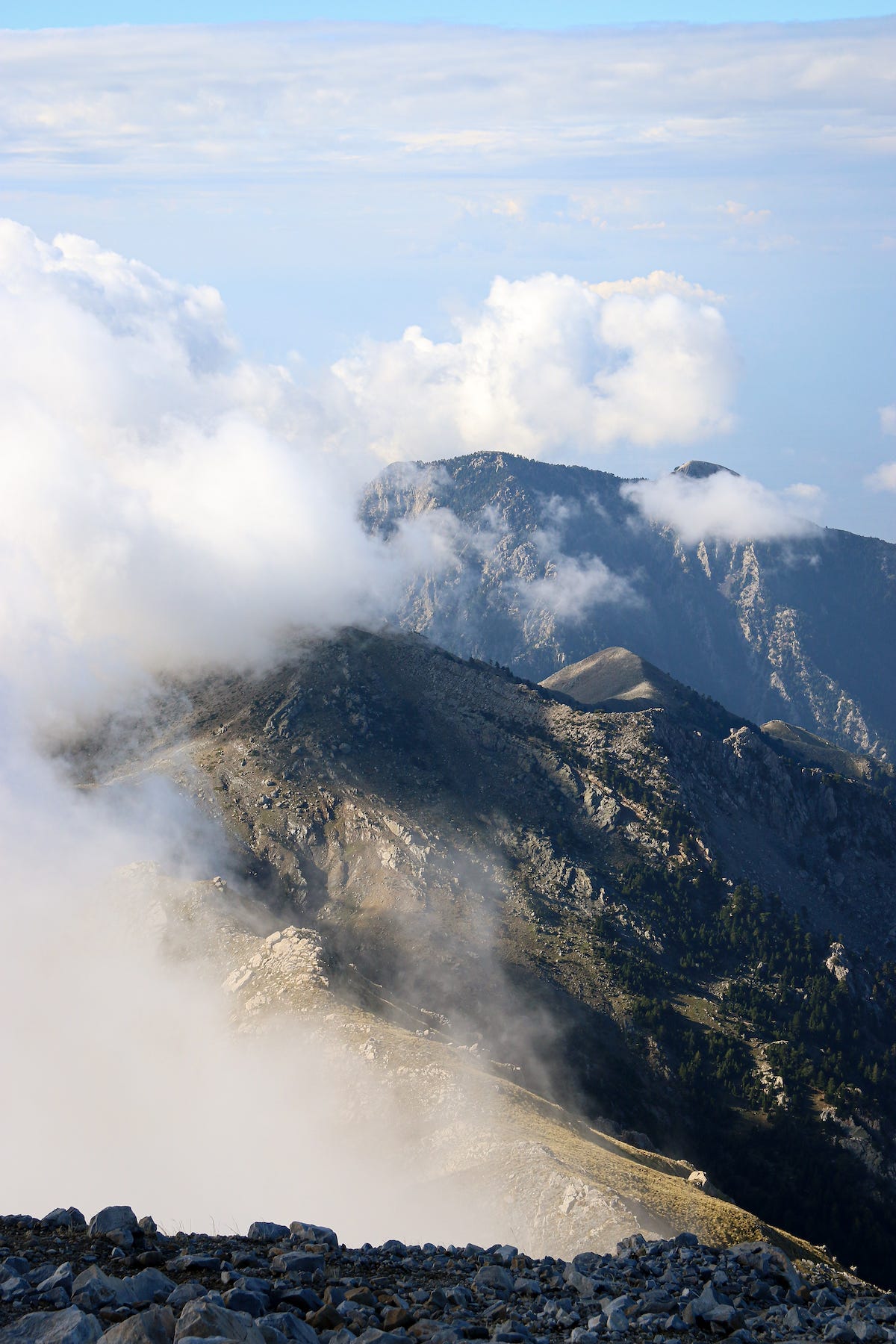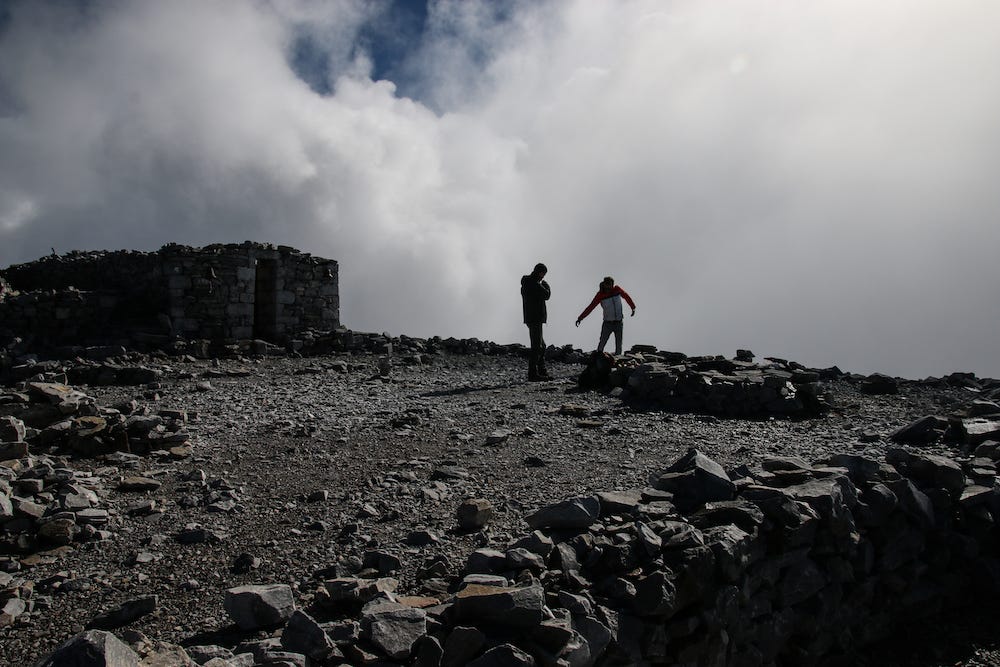Mount Taygetus is crowned with a small, roofless church. Hanging either side of the grey stone doorway, two bells give a warm and clear tone – if you can muster the courage to swing their clangers and break the silent atmosphere that breezes over our heads. Inside the bare walls, a jumble of burned wood is scattered around a rustic stone altar. Somehow it feels wrong to spend your limited time on a mountaintop indoors, so we’re soon outside again, pondering an 8ft well crammed with plastic.
It’s debris from the festivities on the feast day for the Prophet Elias, says my guide, John1. I can see he is quietly frustrated by this ugly blot of rubbish on the otherwise pristine summit, the highest point of the Peloponnese region whose southern ranges extend all around us, scoured by a clean and silvery light. (Mount Taygetus also goes by the name Profitis Ilias – one of a few mountains in Greece to do so – and the Orthodox Church celebrates the Prophet Elias, or Elijah, every 20th July.)
Fabian decides to do something about the plastic. He’s a young German guy we met on the way up, who quit his job in automotive electronics and has spent the last month-and-a-half travelling around Greece in his van. He dives into the pit with a roll of rubbish bags from his backpack, and between the three of us we carry six full bags of bottles and wrappers down the mountain.
I expect Fabian to be driving something modern, but when we make it down to the refuge where he’s parked, and where John and I had hidden our mountainbikes, Fabian’s 15-year-old Sprinter turns out to be as down-to-earth as it gets. No fancy #vanlife setup – just a simple bunk in the back, with some drawers and a fridge, and a fairly hardcore electricity setup. Most of the space is taken up with his mountainbike and BMW motorbike, and now six bags of crap. Something tells me he can’t be bothered with an Instagram account. His adventure is personal.
I sense a kindred spirit both in Fabian and John, but have the impression that a bond between the two of them would be harder to form. Fabian’s maverick independence and John’s mellow confidence are different brands of masculinity. A few hours earlier none of us had ever met before, and we may never meet again.
Cycling from the mountain refuge to the town of Sparta in the plain below (a 17km run of mostly downhill bliss), John and I pause at a viewpoint looking east over a crackling terrain of olives and oranges stretching for five level miles until the green mountains of Parnonnas begin another cacophony of contours. I tell John that I could easily feel at home among these peaceful groves, “but I suppose having a load of Brits moving into the area would probably spoil it.”
John is too open-hearted to agree with this. “No, I think it would be good to have new people here. New people, new ideas…”
I want to reply that not all new ideas are good ideas, but his goodwill reveals me to myself, so I button it. Sometimes it feels right to be disagreed with.
I was writing a magazine feature at the time, so John had been assigned to me to help promote the region. Having never walked with a guide before, I was uncertain what to expect, but he was excellent. He works for Laconia Travel.





